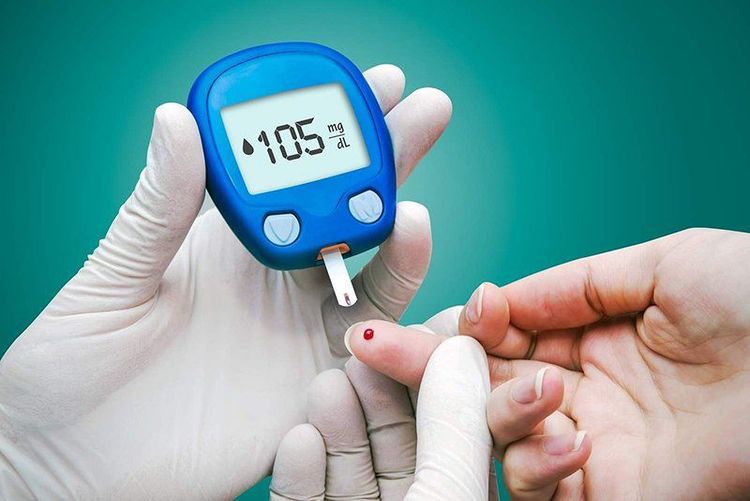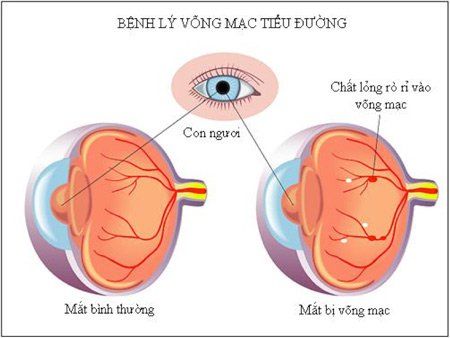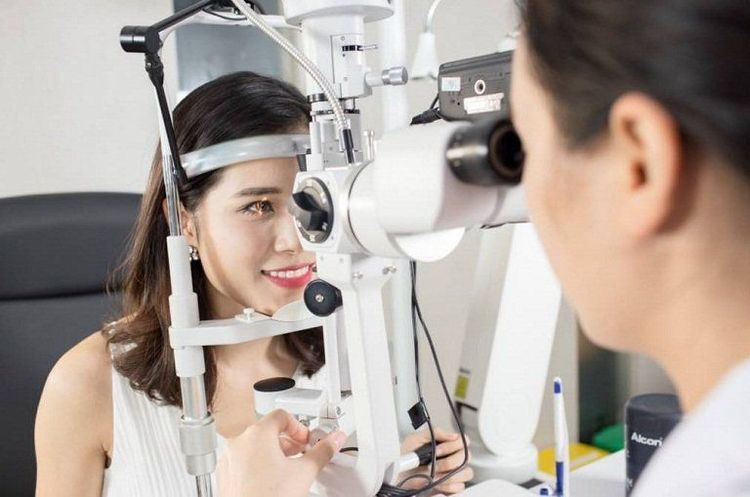This is an automatically translated article.
This article is for people with diabetes, or a friend caring for someone with diabetes, or anyone who wants to learn more about how to protect their eyesight with diabetes. The main goal is to help patients and carers have more knowledge to protect their eyes when they have diabetes, how to screen for diabetic retinopathy, one of the common eye complications caused by diabetes, including the time of eye examination.
1. What is diabetic retinopathy?
Diabetic retinopathy is the most common type of diabetic eye complication, a group of eye diseases that can occur in people with diabetes.
Diabetic retinopathy is very dangerous, can cause permanent vision loss, and even blindness, if not treated promptly and appropriately. It is the most common cause of vision loss in people with diabetes and the leading cause of blindness in people aged 20 to 60 years. But if diabetic retinopathy is detected and treated early, blindness can be prevented.
2. Who can get diabetic retinopathy?
Anyone with type 1 or type 2 diabetes can develop diabetic retinopathy.
Factors that increase your risk for the disease mainly depend on:
How long you have had diabetes - the longer you are at risk for diabetic retinopathy How often changes in glucose (sugar) ) in your blood and under control Other factors include: High blood pressure, high cholesterol, pregnancy, smoking

Bất kỳ ai mắc bệnh tiểu đường đều có thể bị bệnh võng mạc tiểu đường
3. Why does diabetes cause diabetic retinopathy?
Diabetic retinopathy occurs when the small blood vessels in the retina (the tissue lining the back of the eye that changes light into images) is damaged.
Over time, high blood sugar clogs these vessels. As a result, they swell and weaken, and blood and fluid leak into the retina affecting your vision.
To solve this problem, your eyes may try to grow new blood vessels, but they will not develop normally. As more vessels become blocked and new abnormal vessels develop, they cause scarring on your retina and further damage your vision.
Diabetic retinopathy usually occurs in both eyes.
4. Prevention of Diabetic Retinopathy
Diabetic retinopathy often has no symptoms, especially in its early stages. Serious and permanent damage to your eyes, even blindness, can happen before you notice any changes or problems with your vision. This is why it is so important to have an eye exam and vision test to detect or prevent diabetic retinopathy early.
As diabetic retinopathy gets worse, symptoms and changes in your vision may occur including:
Dark spots or streaks appear Holes or dark/blank areas Blurry Unable to see color Sharpness Fluctuating vision (worsening, improving, worsening) Vision loss, including when you read or drive Eye pain Contact your doctor immediately if your vision changes suddenly or if you start to have any symptoms.
Controlling diabetes can help improve your eye health
One of the best ways to help prevent or slow vision loss is to manage your diabetes carefully.

Võng mạc tiểu đường có thể khiến mắt bạn bị tổn thương nghiêm trọng và vĩnh viễn
5. Protect your eyes when you have diabetes
Ways to control diabetes and help keep your eyes healthy include:
Well control your blood sugar Control blood pressure and cholesterol levels Take medications as directed Adopt a diet drink healthy and limit alcohol Stay physically active and maintain a healthy weight Quit smoking See your doctor regularly and have your hemoglobin A1C checked Regular eye exams are key If you have diabetes, get checked out. An annual eye exam is the only way to know for sure if you have diabetic retinopathy. Your doctor may also recommend more frequent visits.
Because diabetic retinopathy often has no symptoms and goes unnoticed until vision loss occurs, you should have an eye exam even if your vision seems fine. This can help your doctor detect and treat eye problems early.
If you are pregnant and have diabetes, get a full eye exam during the first trimester of your pregnancy. Your doctor may also recommend additional eye exams during your pregnancy.
During an eye exam, for dilation, the doctor will put drops in the eye to widen (dilate) the pupil so they can see the back of the eye, including the retina. In this way, they can examine a larger area with a special magnifying lens. Your vision may be blurred for several hours after the dilated eye exam.
Your doctor will also check your vision and may recommend other tests, such as measuring pressure in your eyes.

Khám mắt thường xuyên để sớm phát hiện và ngăn chặn bệnh võng mạc tiểu đường
6. Treating Diabetic Retinopathy
Early detection and treatment of diabetic retinopathy can help slow its progression, and possibly even reverse some forms of vision loss.
With mild diabetic retinopathy, you may not need immediate treatment, but your doctor will closely monitor your condition.
If your condition is getting worse, your doctor may recommend some of the following:
Medicines called vascular endothelial growth factor (VEGF) inhibitors , or anti-VEGF, to help stop new abnormal blood vessels from growing and leaking fluid Laser treatment to seal leaks and shrink or stop new abnormal vessels Vasectomy, surgery surgery to remove blood, fluid, and scar tissue from the eye. Eye exams and vision tests, prompt treatment, and control of diabetes can all help protect against vision loss.
During the visit, you may ask the doctor some questions such as:
Am I at risk for diabetic retinopathy?
What can I do to help protect my vision?
How often should I have an eye exam?
How can I help control my diabetes?
What treatments are there and what are their side effects?
What type of diet and exercise is best for me?
Should I change my lifestyle?
If you have diabetes, an annual complete and dilated eye exam is the only way to know for sure if you have diabetic retinopathy. Diabetic retinopathy often has no symptoms, especially in its early stages. Serious and permanent damage to your eyes, including blindness, can happen even before you notice any changes or problems with your vision. This is why it is important to see an eye doctor early to protect your eyes, especially for people with diabetes.
If you have a need for consultation and examination at Vinmec Hospitals under the nationwide health system, please book an appointment on the website for service.
Please dial HOTLINE for more information or register for an appointment HERE. Download MyVinmec app to make appointments faster and to manage your bookings easily.
Reference source: education.webmd.com













